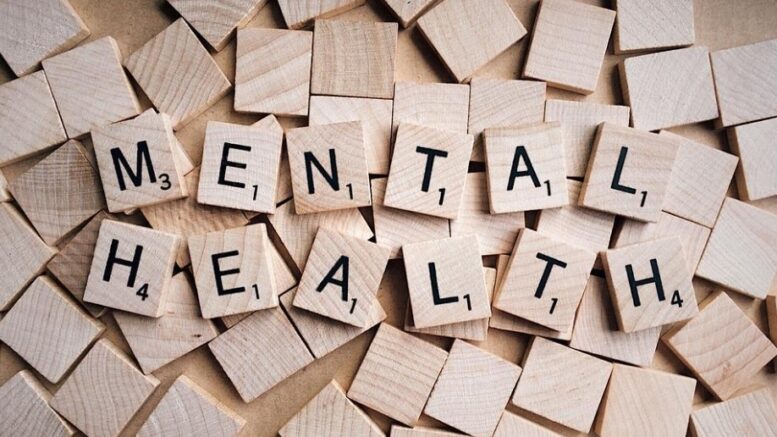When people think of therapy, they often imagine it as something only for those with a mental health diagnosis such as depression, anxiety, or post-traumatic stress disorder. While therapy is essential for those conditions, it also offers powerful benefits for anyone—diagnosis or not.
Therapy is about more than treating illness. It is about growth, self-awareness, resilience, and creating healthier relationships. In a fast-paced world where stress is high and demands never end, therapy can be a valuable tool for protecting and strengthening mental well-being.
Breaking the Myth: Therapy Is Only for Illness
The idea that therapy is only for people in crisis keeps many from seeking help. In reality, therapy is similar to going to the gym or visiting a nutritionist—it’s preventive care. You don’t need to wait until you are unwell to benefit.
According to the American Psychological Association (APA), therapy helps people improve coping skills, build emotional awareness, and create healthier habits, even when no diagnosis is present【APA, 2021】. Just like regular exercise prevents disease, therapy can prevent emotional struggles from becoming overwhelming.
Everyday Stress and Modern Life
Modern life brings constant pressure. Work stress, financial concerns, social expectations, and digital overload take a toll on mental health. Even if these pressures don’t lead to a clinical diagnosis, they can cause:
- Difficulty sleeping
- Irritability or mood swings
- Strained relationships
- Lack of motivation or burnout
- Feelings of being “stuck”
Therapy offers tools to manage these everyday stressors, creating space to live with more balance and clarity.
The Benefits of Therapy Without a Diagnosis
1. Building Emotional Awareness
Therapy provides a safe space to explore feelings that often go unspoken. Many people push emotions aside or don’t fully understand them. A therapist helps identify patterns and connect emotions to behavior, increasing self-awareness.
This emotional awareness strengthens resilience, allowing people to respond to challenges thoughtfully rather than react impulsively.
2. Improving Relationships
Therapy is not just individual—it has ripple effects. By learning better communication, setting healthy boundaries, and resolving conflict, people improve their relationships with partners, family, and coworkers.
A study published in Journal of Marital and Family Therapy showed that therapy improves relationship satisfaction, even when couples are not in crisis【Lebow et al., 2012】.
3. Enhancing Stress Management
Chronic stress affects both body and mind. Therapy teaches coping strategies such as mindfulness, breathing exercises, and cognitive reframing. These techniques reduce stress and improve focus.
4. Supporting Personal Growth
Therapy helps clarify values, goals, and purpose. Many people seek therapy during life transitions—changing careers, moving, or starting a family. Having guidance during these times supports confidence and decision-making.
5. Preventing Mental Health Problems
Early support makes a difference. Learning coping skills before stress becomes overwhelming may reduce the risk of developing depression or anxiety. Preventive care through therapy strengthens mental health the same way regular checkups protect physical health.
6. Boosting Self-Esteem and Confidence
Therapy helps challenge negative self-talk and limiting beliefs. Over time, this builds confidence and a healthier sense of self-worth. Even small changes in self-esteem improve overall happiness and productivity.
7. Creating a Safe Space
Not everyone has someone they feel comfortable confiding in. Therapy provides a confidential, nonjudgmental environment where people can express feelings openly. Simply being heard can be healing.
Therapy for Different Life Stages
Therapy offers unique benefits depending on where someone is in life:
- Students and young adults: Managing academic pressure, identity questions, and future planning
- Adults: Balancing careers, relationships, and financial stress
- Parents: Navigating family dynamics and responsibilities
- Older adults: Coping with retirement, loss, or loneliness
At every stage, therapy can be a source of strength and clarity.
Types of Therapy That Benefit Everyone
You don’t need a diagnosis to explore different forms of therapy:
- Cognitive Behavioral Therapy (CBT): Helps identify and change unhelpful thought patterns.
- Mindfulness-based therapy: Teaches presence and stress reduction techniques.
- Humanistic therapy: Focuses on self-growth and reaching full potential.
- Group therapy: Offers shared experiences and support in a community setting.
- Couples or family therapy: Strengthens communication and relationships.
These approaches benefit anyone seeking growth or support in daily life.
What the Research Says
The effectiveness of therapy is well-documented, even outside of diagnosed mental illness.
- A meta-analysis in Psychological Bulletin found that psychotherapy leads to better outcomes in well-being and life satisfaction, not just symptom reduction【Lambert, 2013】.
- The National Alliance on Mental Illness (NAMI) emphasizes that therapy is beneficial for “everyday challenges,” not only for mental health disorders【NAMI, 2022】.
- People who attend therapy regularly report higher emotional resilience and stronger coping skills, regardless of diagnosis.
How to Know If Therapy Could Help You
You don’t need to wait for a crisis. Consider therapy if you:
- Feel overwhelmed by daily stress
- Struggle with work-life balance
- Want to improve relationships
- Experience frequent irritability or fatigue
- Feel “stuck” or unmotivated
- Simply want to understand yourself better
Therapy is for anyone who wants to live with more clarity, purpose, and balance.
Overcoming the Stigma
Some people hesitate to try therapy because of stigma. They may worry that seeking help means something is “wrong.” In reality, choosing therapy is a sign of strength. It shows a willingness to grow, improve relationships, and invest in mental health.
Just as people go to the gym without being sick, people can go to therapy without a diagnosis. Both are forms of self-care.
Conclusion
Therapy is not only for those with a diagnosis. It is a valuable tool for anyone navigating life’s challenges, stressors, and transitions. By providing emotional awareness, coping strategies, and a safe space for reflection, therapy strengthens mental wellness and resilience.In today’s world, where stress is constant and demands are high, therapy can be the anchor that helps people stay grounded. The message is simple: you don’t need a diagnosis to deserve support, growth, and care.
